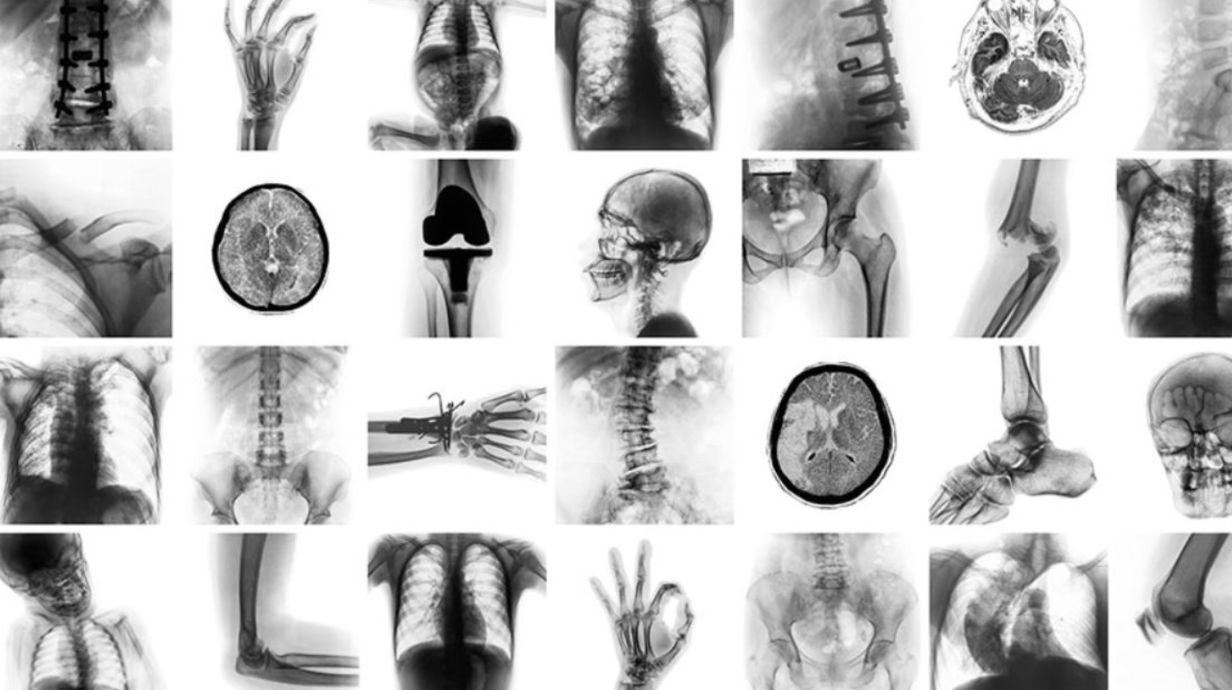Radiologic Sciences, B.S. (2 + 2)
Learn to perform medical imaging procedures to diagnose disease and injury.

"HPAO has helped me by giving me the opportunity to grow as a person both mentally and physically. My advisor gives me so much insightful advice every time I walk into his office!"
Nina Patel ('26)
B.A. in Allied Health Studies
About the Bachelor of Science in Radiologic Sciences
At the University of Mississippi, radiologic sciences is a 2+2 program that is not completed at the UM-Oxford campus. Traditionally, UM students prepare complete two years of coursework then apply to University of Mississippi Medical Center's Bachelor of Science in Radiologic Sciences program in Jackson, MS. Acceptance into the final two years of clinical coursework is competitive and class size is limited. Licensed professionals are then able to seek further certification and specialization in modalities such as: magnetic resonance imaging (MRI), sonography, radiation therapy, nuclear medicine, or mammography among others.
While at UM, you will be enrolled in the Allied Health Studies major and be assigned an academic counselor who will ensure that you have the pre-requisite courses needed to be able to apply to the radiologic sciences schools of your choice. Pre-requisite requirements are determined by your schools of interest. Our office not only keeps you on track with pre-requisites, we provide tutoring, application assistance, mock interviews to help prepare for the actual interview, and help with locating schools based on your criteria.
Incoming freshman will select the radiologic sciences emphasis for Allied Health Studies on their UM application. Others complete the short online form to be assigned to an HPAO advisor and notified about HPAO programs and services.
The Value of an Allied Health Studies Degree
Allied Health Studies majors gain the ability to understand human behavior, communicate complex ideas, think critically, interpret data, and engage with a diverse world. These skills prepare our majors to enter any allied health profession and become leaders of the future.
What is Radiologic Sciences?
Utilizing specialized imaging equipment and advanced computer technology, the radiologic technologist is responsible for performing a variety of challenging and interesting examinations on a diverse patient population. Radiologic technologists work closely with other members of the health care profession and are vital in providing the images necessary for diagnosing disease and injury.
Radiologic sciences is a term used to describe the related fields pertaining to imaging techniques for medical diagnosis, evaluation, and treatment - not only diagnostic radiology, but also bone densitometry, cardiovascular/interventional radiography, computed tomography (CT), magnetic resonance imaging (MRI), mammography, nuclear medicine, radiation therapy and sonography.
- For more information regarding radiologic technologists' salary, job outlook, and resources, visit Explorehealthcareers.
- For job outlook information for radiologic and MRI technologists, visit the Occupation Outlook Handbook.
On this Page…
Program Information
Degree
B.S. in Radiological Sciences
Required Credit Hours
120
Program Type
Major
Program Location
School
Duration
4 years
Radiologic Sciences Degree Requirements
Departments from across the University of Mississippi contribute courses to the B.A. in Allied Health Studies, which is organized by HPAO. The degree prepares students for application and admission to allied health professional schools.
- Bisc 210: Microbiology (or any Bisc 300 level or higher)
- ES 396: Allied Health Terminology OR Clc 201: Medical Terminology
- Spch 102: Fundamentals of Public Speaking OR Spch 105: Business and Professional Speaking
- One of the following advanced communication courses
- Spch 305: Collaborative Communication
- Writ 300: Rhetoric of Professional Communication
- Writ 310: Writing in Professional Contexts
- Writ 320: Contemporary Writing Studies
- Writ 380: Scientific Writing
- Writ 399: Special Topics
- Writ 410: Grant Writing
- 5 of the following electives, depending on your allied health field and interests
- Anth 349: Medical Anthropology
- IMC/Jour 585: Health Communications
- NHM 325: Family Relations
- NHM 328: Child Development
- Phil 321: Ethics
- Phil/Rel 328: Biomedical Ethics
- Soc 301/G St 303: The Family
- Soc 310: Sociology of Disability
- Soc 311: Social Problems
- Soc 333: Sociology of Delinquency
- Soc 345: Population Trends and Problems
- Soc 353: Community Development
- Soc 370/Hon 315: Population Health
- Soc 413/AAS 413: Race and Ethnicity
- Soc 427: Social Stratification
- SW 326: Gerontology
- Any 300 level or above biology course
- Any 300 level or above psychology course
- Any 300 level or above exercise science course
Additional requirements for the program are:
- Psy 201: General Psychology
- One of the following
- Psy 301: Developmental Psychology
- Psy 311: Abnormal Psychology
- NHM 323: Human Growth and Development
Welcome to Pre-Radiologic Sciences
Whether you're learning more about what it means to be a radiologic technologist or actively preparing to apply to professional school, we’re here to support your journey. Explore the dynamic and continuously evolving profession of Radiological Sciences, learn more about their role as members of the healthcare team, and how to become a competitive candidate for professional school.
Andrew Bilbo
Assistant Director of Health Professions Advising
Meet a Radiological Sciences Student
Want to know what it's like to study for a B.S. in Radiologic Sciences degree at Ole Miss? Hear from one of our current students.
What is the Health Professions Advising Office?
Watch the video below to learn more about HPAO and how they can help you succeed in Radiologic Sciences.
Next Steps
Explore Affordability
We have a variety of scholarships and financial aid options to help make college more affordable for you and your family.
Apply to the University of Mississippi
Are you ready to take the next step toward building your legacy?

